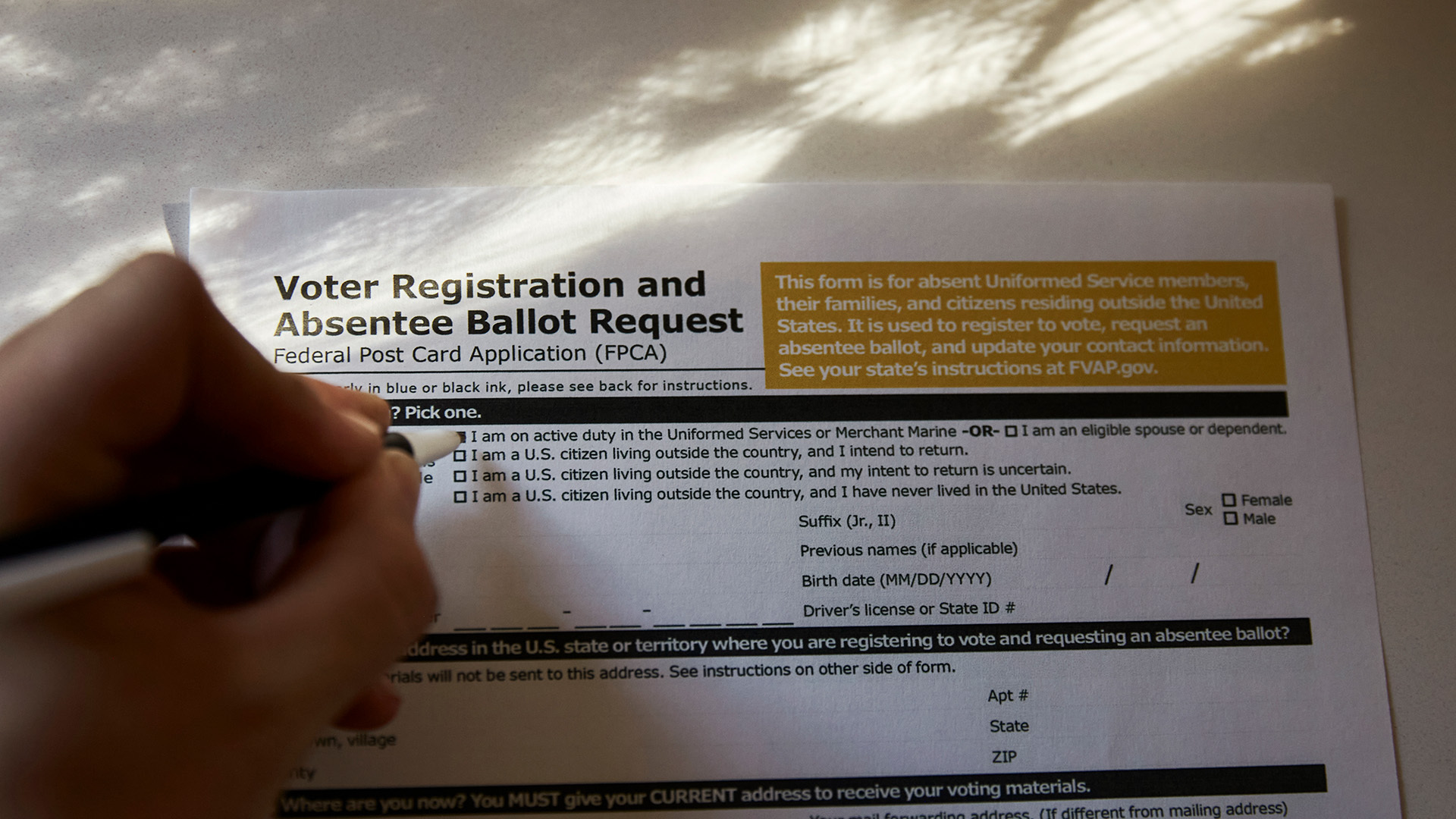
[KARAH RUCKER]
CONGRESS IS RETURNING TO CAPITOL HILL.
ON THE DOCKET THIS WEEK –
A VOTE IN THE HOUSE ON THE CONTROVERSIAL “SAVE ACT”.
A BILL INTRODUCED BY HOUSE REPUBLICANS THAT WOULD REQUIRE VOTERS TO SHOW PROOF OF U.S. CITIZENSHIP IN ORDER TO CAST A BALLOT.
WE’LL LAY OUT WHAT THE PROPOSAL MEANS.
HOW IT IMPACTS YOU.
AND THE REASONINGS FROM BOTH MAJOR POLITICAL PARTIES FOR AND AGAINST IT.
THE SAVE ACT WOULD MAKE CHANGES TO THE NATIONAL VOTER REGISTRATION ACT.
UNDER THE CURRENT LAW –
VOTERS ARE ONLY REQUIRED TO ATTEST TO THEIR CITIZENSHIP STATUS –
BY CHECKING A BOX SAYING THEY **ARE A U.S. CITIZEN.
BUT THE SAVE ACT WOULD **CHANGE THIS –
REQUIRING SOMEONE TO SHOW PROOF THEY ARE A U.S. CITIZEN IN ORDER TO REGISTER TO VOTE IN FEDERAL ELECTIONS – INCLUDING PRESIDENTIAL ONES.
DOCUMENTS THAT COUNT AS PROOF OF CITIZENSHIP INCLUDE –
A U.S. PASSPORT.
A PHOTO ID CARD **IF PROOF OF CITIZENSHIP WAS REQUIRED TO OBTAIN IT.
OR –
A PHOTO ID ALONG WITH SUPPORTING DOCUMENTATION –
SUCH AS A BIRTH CERTIFICATE.
FOR U.S. CITIZENS WHO ARE LACKING DOCUMENTS –
STATES WILL BE GIVEN ACCESS TO “FEDERAL AGENCY DATABASES” SO THEY CAN CONFIRM A PERSON’S CITIZENSHIP IN ORDER TO APPROVE VOTER REGISTRATION – ACCORDING TO THE TEXT OF THE “SAVE ACT” BILL.
OTHER CHANGES UNDER THE SAVE ACT WOULD INCLUDE REMOVING NON-CITIZENS FROM VOTER ROLLS –
HOMELAND SECURITY WOULD HAVE THE DISCRETION TO REMOVE NONCITIZENS FROM THE U.S. IF THEY WERE FOUND TO HAVE WRONGFULLY REGISTERED TO VOTE.
AND IF STATE ELECTION OFFICIALS REGISTER NONCITIZEN APPLICANTS – THEY CAN FACE JAIL TIME OR BE SUED.
HOUSE SPEAKER MIKE JOHNON RELEASED A 22-PAGE PLEA TO HOUSE MEMBERS TO “PASS THE SAVE ACT” –
IN IT –
HE SAYS “CONGRESS MUST PASS THE SAVE ACT TO CLOSE THE LOOPHOLES THAT ALLOW NONCITIZEN REGISTRATION AND – IN TURN – VOTING. TO ENHANCE ELECTION SECURITY. MINIMIZE THE RISK OF FOREIGN INTERFERENCE – AND RESTORE AMERICANS’ CONFIDENCE IN U.S. ELECTIONS.”
THERE WAS A SIMILAR BILL VOTED ON BY THE HOUSE IN MAY –
BLOCKING NON-CITIZEN VOTING IN WASHINGTON D.C.
52 DEMOCRATS SIDED WITH REPUBLICANS TO PASS IT.
BUT DEMOCRATIC LEADERSHIP IS URGING ITS PARTY MEMBERS TO VOTE IN SOLIDARITY THIS TIME **AGAINST THE SAVE ACT.
IN A WHIP QUESTION RELEASED AHEAD OF THIS WEEK’S VOTE –
HOUSE MINORITY WHIP KATHERINE CLARK SAYS “Under the SAVE Act, for the overwhelming majority of Americans, the only acceptable standalone form of identification for use in voter registration would be a passport (or passport card). AREAL ID drivers’ license, a Tribal ID, or a military ID would be unacceptable unless coupled with additional documentation.”
“This would be an extreme burden for countless Americans, including military voters, Native voters, people who have changed their names (including tens of millions of American women), the elderly, the young, the poor, and naturalized citizens.”
THE SAVE ACT VOTE IS ONE OF SEVERAL TO WATCH FOR THIS WEEK.
WE REACHED OUT TO HOUSE SPEAKER MIKE JOHNSON TO ASK WHEN THE SAVE ACT WOULD TAKE EFFECT IF IT WERE TO PASS –
WHETHER THE CHANGES WOULD TAKE PLACE BEFORE THE NOVEMBER ELECTION.
WHILE WE HAVEN’T HEARD BACK –
THERE IS A SLIM LIKELIHOOD THE BILL GETS TO THAT POINT.
EVEN IF IT PASSES THE HOUSE – IT’S NOT LIKELY TO GET TAKEN UP BY THE SENATE.











